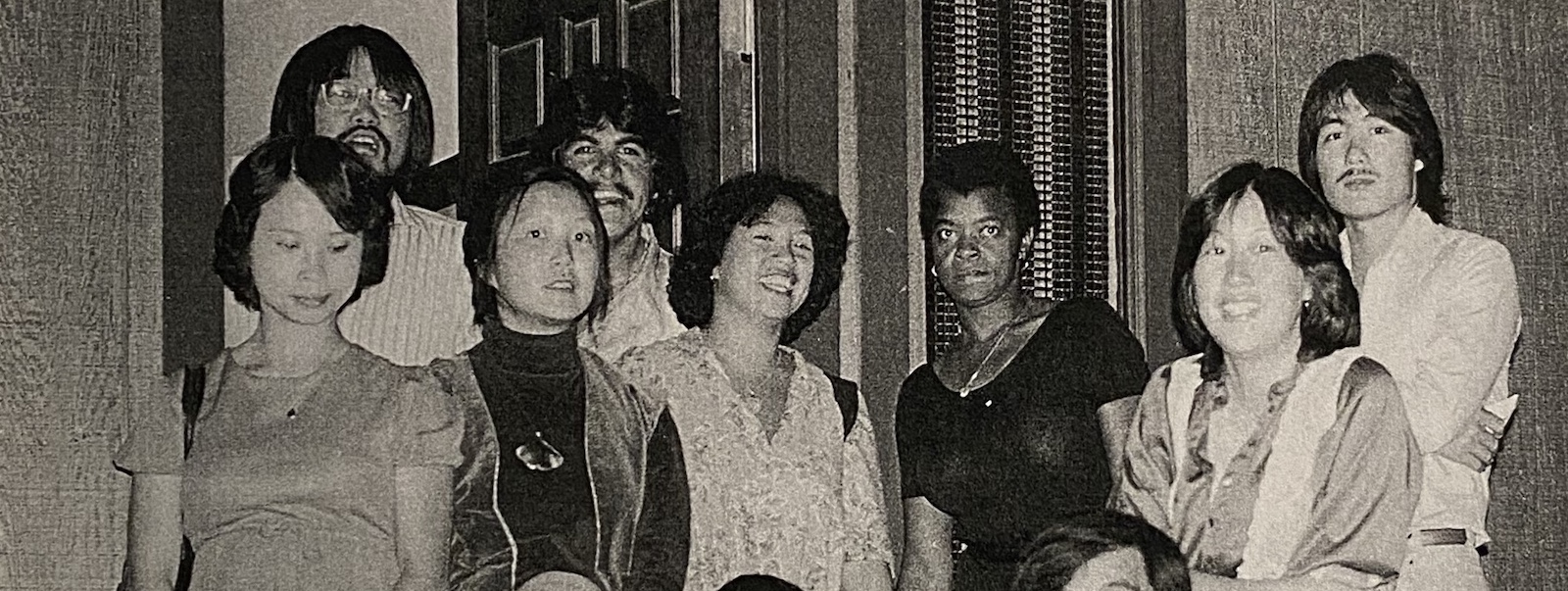2018-2024: New Courses, COVID, Sinophobia
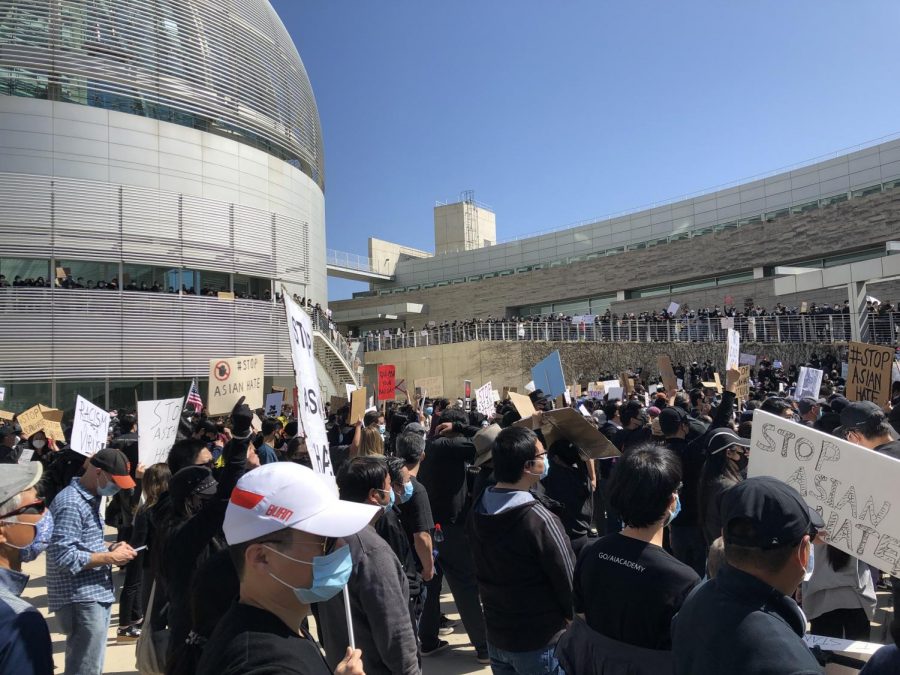 A "Stop Asian Hate" rally in San Jose. (La Voz, 2021)
A "Stop Asian Hate" rally in San Jose. (La Voz, 2021)
Overview
The Asian American Studies program re-departmentalizes as Asian American and Asian Studies (ASAM). The Department introduces new courses—which include an introduction to Filipinx American Studies, and examination of pan-ethnic Asian America in relation to thinking critically about racial formation and racism, culture-making, Asia, and politics. The COVID pandemic hits shortly after and precipitates a wave of anti-Asian scapegoating and violence. There is a resurgence of the Black Lives Matter movement in the U.S. and beyond, and a coalitional movement to Stop Asian Hate. A new racial reckoning thrusts Ethnic Studies into the national spotlight with a moral urgency hearkening the anti-racism imperatives of the Civil Rights period. California responds by legislating Ethnic Studies as a graduation requirement across four public education systems.
2020 will always stand out in my memory as a dark year. The COVID lockdown and the surge of anti-Asian hate raised questions for me that had no clear answer: Is it human nature to divide along racial lines? Can individual actions lead to social change?
These questions were ultimately part of the reason why, three years later, I enrolled in my first Asian American Studies class at De Anza, which changed my life.
Though this period is recent, it already feels like history in the making.
Key Events

Image from flier for the Philippines Study Abroad program
Summer 2019
"De Anza offers classes in Philippines"
De Anza offers its first study abroad trip to the Philippines in over forty years, with the previous one led by Gloria Hom in 1978. The program focuses on the history of occupation and colonization in the Philippines. Faculty leads are Francesca Caparas and Noemi Teppang.
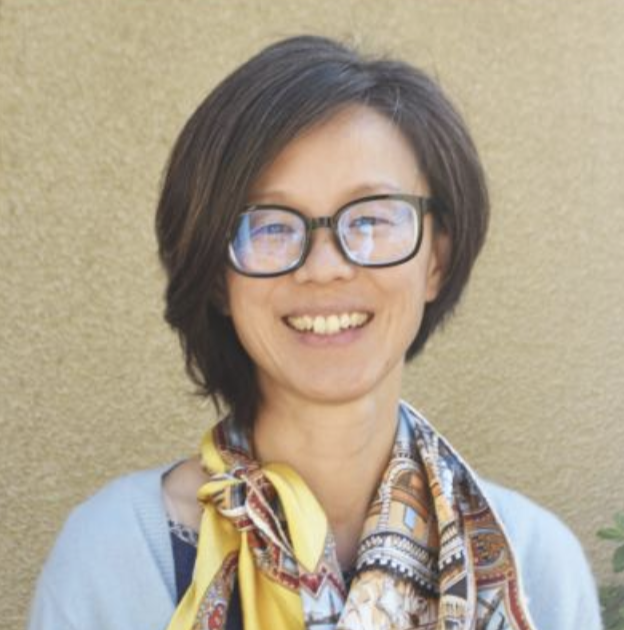
Mae Lee, new department chair (La Voz, circa 2019)
2019
New department chair and courses
Michael Chang retires after leading Asian American Studies for thirty years. Mae Lee becomes the new program chair. As part of her tenure, Lee grows the program—with five new courses, a new certificate program, and a first ever website. Asian American Studies officially re-establishes itself as a department, with a fresh name ("Asian American and Asian Studies") and new department code (ASAM).
One of the courses, Filipinx American History and Culture (ASAM 30), is developed by a student-led committee that advocated for the inclusion of a Filipinx-specific course and took the unique step of designing the course curriculum themselves.
In retrospect, it was amazing timing that the ASAM Department re-emerged at this moment. An energetic collection of faculty helped expand the program with new course offerings. APASA staff and faculty contributed to an active ASAM community. The next year was the COVID pandemic. Who knew that Asian American Studies would be so important in the throes of anti-Asian scapegoating and a national racial reckoning led by the BLM movement? We couldn't have anticipated what happened. But ASAM was well positioned.

De Anza's psychological service department stands empty. (La Voz, 2019)
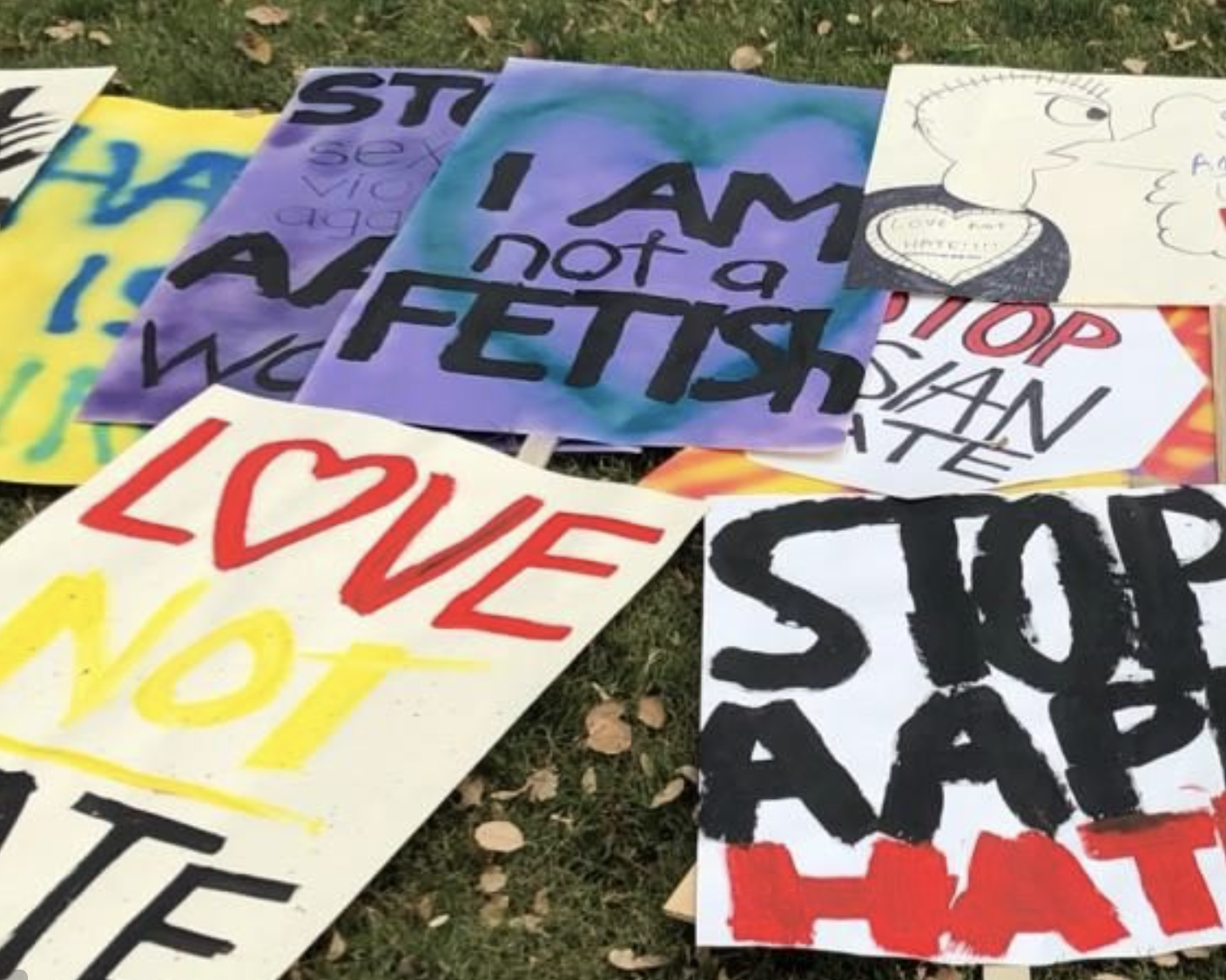
Posters from a "Stop Asian Hate" rally in San Jose. (La Voz, 2021)
May 2020
Sinophobia response
The Foothill-De Anza Board of Trustees unanimously votes to pass a resolution that denounces xenophobia targeted toward Asian Americans in the COVID-19 pandemic.
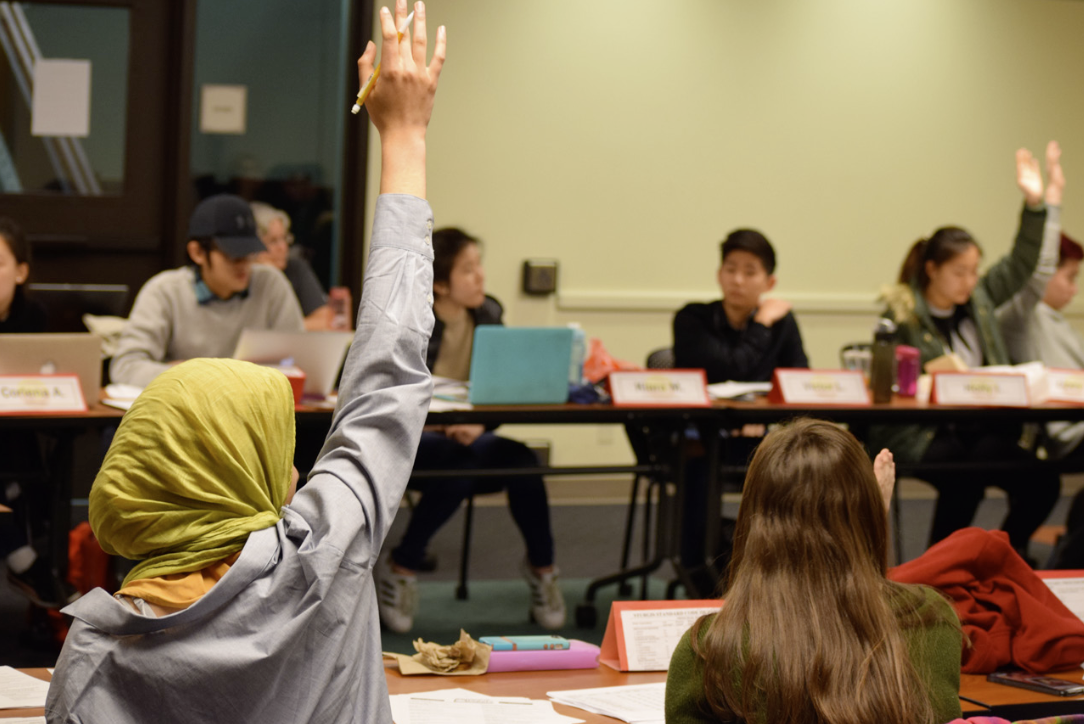
DASB Senate meeting (La Voz, 2017)
May 2020
Presidential search letter
A group of ASAM and APASA members meet to discuss the lack of familiarity and work experience with Asian American and Pacific Islander students/programs that the presidential finalists for De Anza demonstrate. A letter of concern is written and sent to Chancellor Judy Miner and all members of the Presidential Search Hiring Committee.
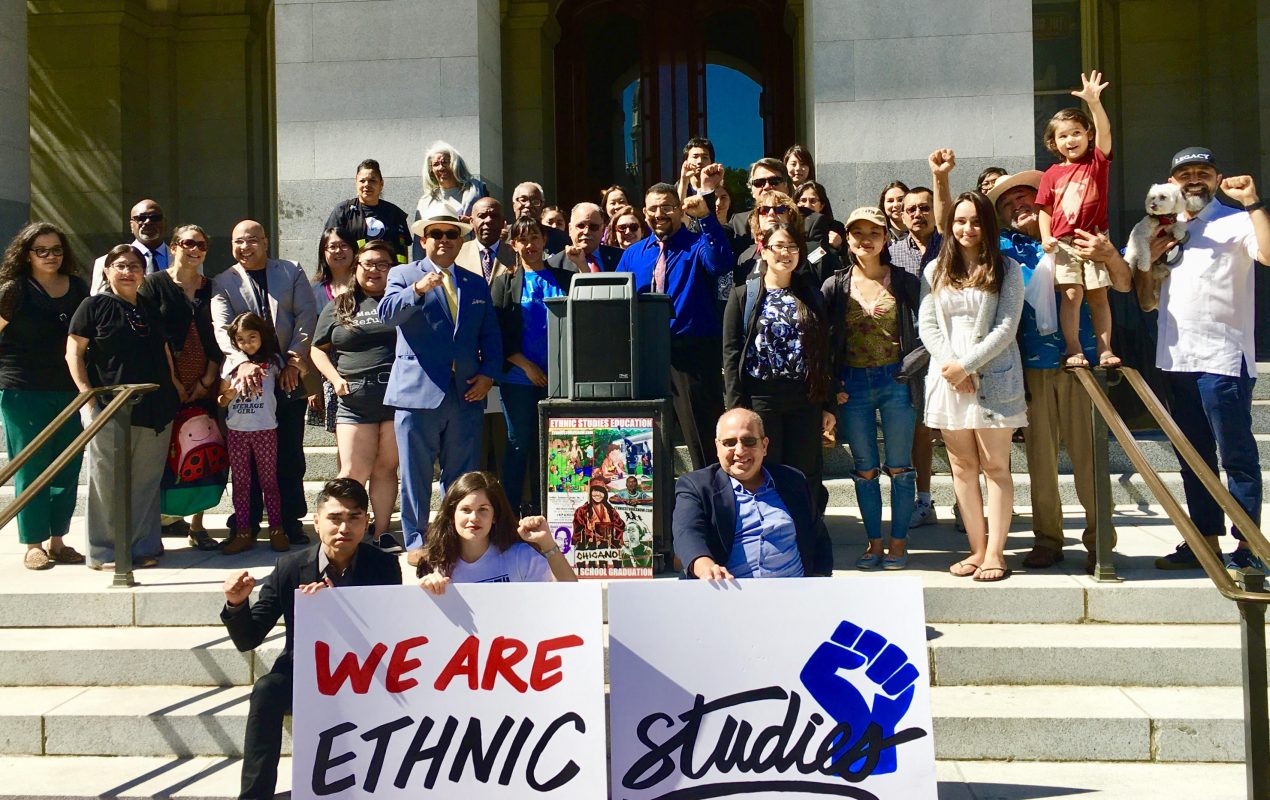
Press conference in support of the ethnic studies graduation requirement in Sacramento on June 27 (EdSource, 2018)
August 17, 2020
Assembly Bill (AB) 1460 passes
AB 1460 requires California State University (CSU) students to take an Ethnic Studies course focused on one of four historically racialized groups: Native American Studies, African American Studies, Asian American Studies or Latina and Latino Studies. The passage of the bill represents a significant milestone and signals a resurgence of moral urgency in addressing educational equity. It also raises administrative questions at institutions including De Anza.
Key among these concerns is determining what qualifies as Ethnic Studies under this mandate, especially as it excludes Pacific Islands, Oceania Studies, and Filipinx American Studies from its designated categories; or, at best, lumps Pacific Islander Studies with Asian American Studies (Cal-GETC Standards V1.2).
Mandates requiring Ethnic Studies for graduation follow for California high schools (AB 101), community colleges (Title 5 changes, Title 5 wording), and the University of California system (AB 928).

Students and faculty participate in an online speaker series on race. (La Voz, 2021)
Spring 2021
Speaker series on race
The home of Ethnic Studies—the Intercultural and International Studies Division—hosts a five-part mulitiracial panel series entitled “Our Histories, Our Experiences, Our Lives: From Learning to Collective Action.” The series features discussions of anti-Blackness, colonialism, complex ethnic histories, and anti-Asian racism with De Anza's Asian American, Chicanx and Latinx, Pacific Islander, and Indigenous community members.
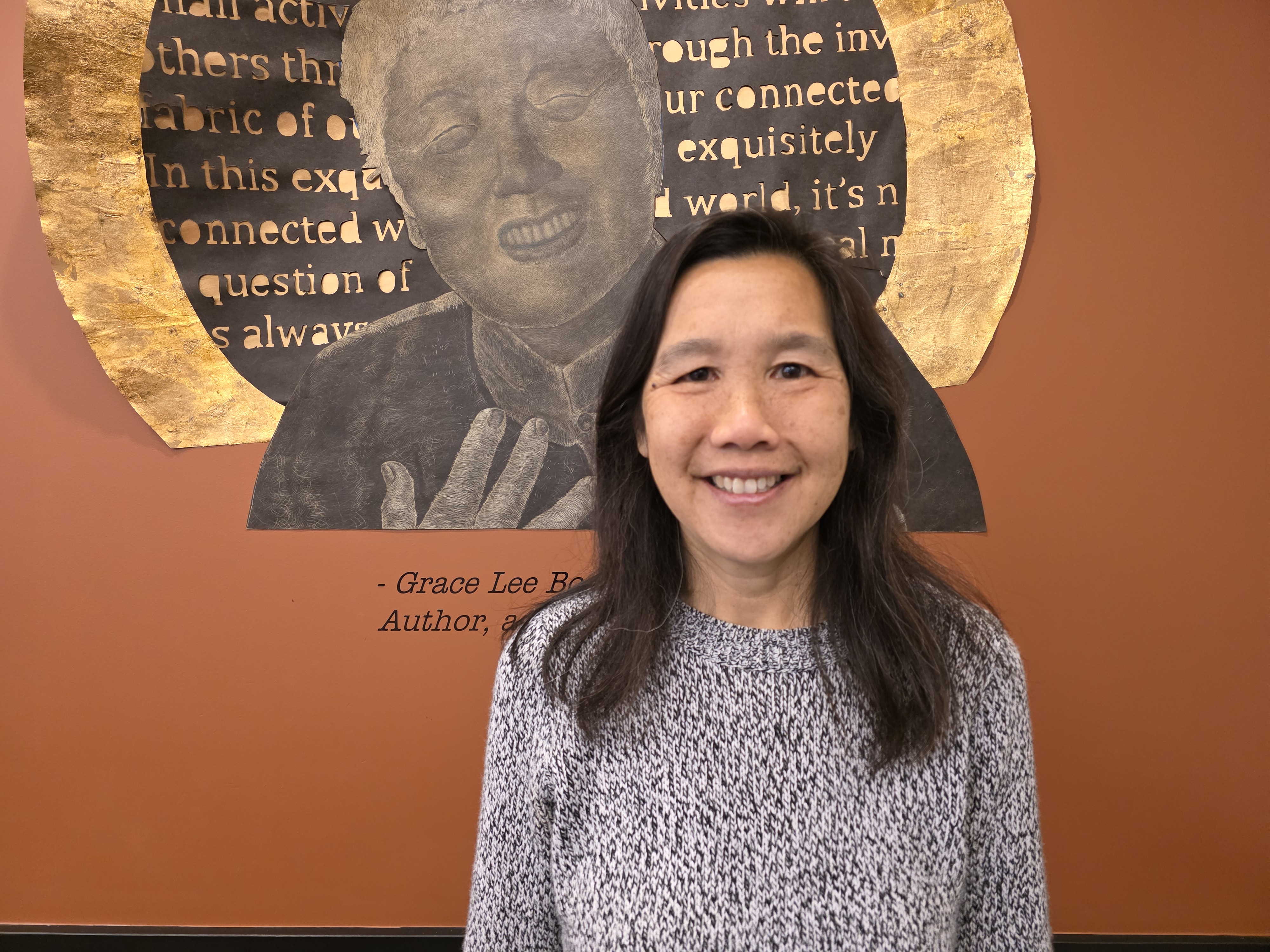
Debbie stands in front of the Grace Lee Boggs mural in the MCC. Photo by Melanie Te (2025).
January 2022
New IIS dean
Debbie Lee becomes the new Dean of IIS, replacing Edmundo Norte. She was previously the Dean of the Fine Arts/Communication and Kinesiology/Athletics Division at Foothill before joining De Anza in 2022 (Stanford Global Studies 2022-23 EPIC Community College Leaders).
Though her primary academic background is in mathematics, she minored in Asian American Studies at San Francisco State University (SFSU), where she also received an M.A. in Asian American Studies and a certificate in Ethnic Studies in May 2022.
In the college-wide announcement of her tenure, Debbie shares her belief in Ethnic Studies and the IIS Division: “Ethnic Studies has had a huge impact on my identity as well as given me the opportunity to feel empowered as a woman of color. I feel strongly that all of our students should have the opportunity to see a curriculum that is relevant to them. I look forward to working with the amazing faculty and staff who have created the Ethnic Studies and world languages programs within this division and look forward to collaborating with others to further De Anza's commitment to civic engagement and social justice."
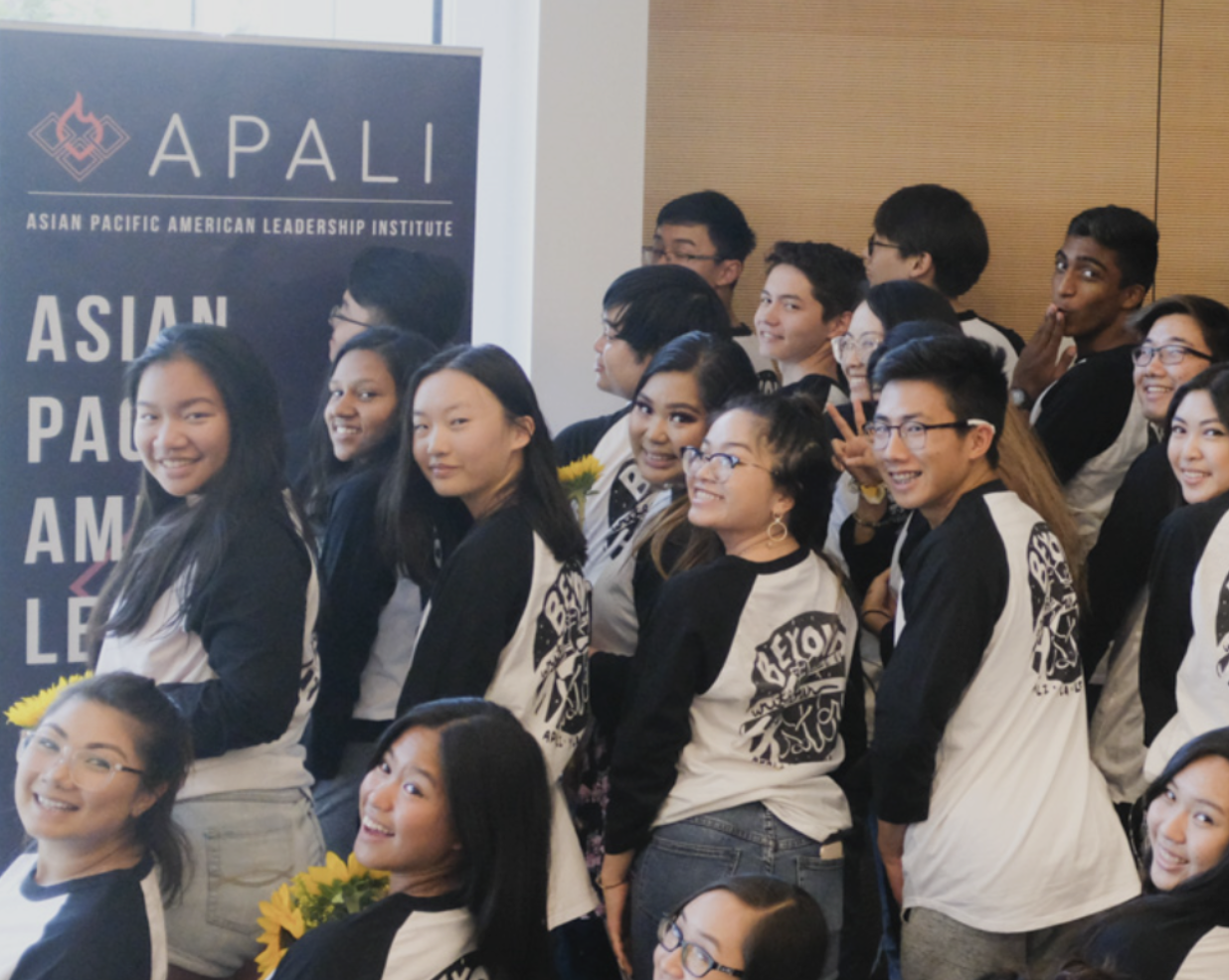
YLA participants circa 2022 (APALI website)
Summer 2023
APALI offers last iteration of YLA at De Anza
APALI offers the 25th and final iteration of its flagship program, the Youth Leadership Academy (YLA), in partnership with De Anza College. Offered as Contemporary Asian American Communities (ASAM 10) during the summer quarter, the program provided students with a foundation in Asian American history and identity, community and civic engagement, and career pathways. Since its inception in 1999 at De Anza, YLA has graduated over 800 alumni.
Notable alumni include Evan Low, who was elected to the CA State Assembly in 2014, and Betty Duong, who was the first Vietnamese American elected to the Santa Clara County Board of Supervisors in 2024.

Ethnic studies summit. (La Voz, 2023)
June 1, 2023
Ethnic Studies summit
The IIS Division hosts an Ethnic Studies summit that reflects on the history and impact of Ethnic Studies at De Anza. The event is held at the California History Center and features an exhibit of student work, a student panel, and retired faculty Ruben Abrica-Carrasco, Michael Chang, Paul Fong, and Carolyn Wilkins-Santos.
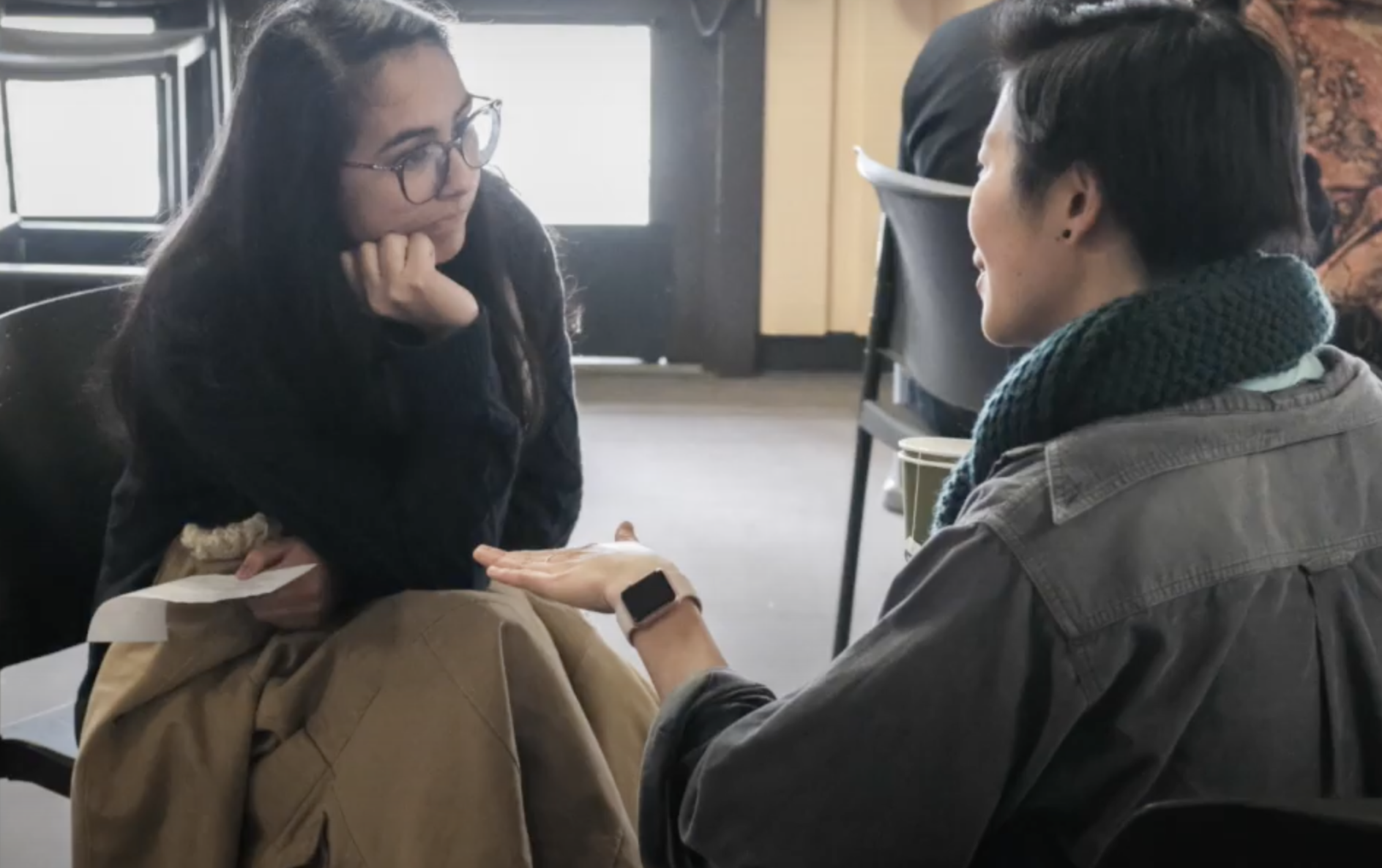
CLP participants (APALI website)
Winter 2024
APALI offers last iteration of CLP at De Anza
APALI offers the 18th and final iteration of the Civic Leadership Program (CLP) in partnership with De Anza College. Offered as Civic Leadership for Community Empowerment (CETH 50) during the winter quarter, the program is designed for individuals pursuing leadership roles as executives, program managers, elected officials, and activists. Since its inception in 2007, CLP has graduated over 500 alumni and will continue to be offered independently through APALI as a nonprofit organization.
De Anza and FEU students pose at the FEU Manila Campus. (FEU Facebook page, 2024)
July 2024
Philippines Study Abroad
De Anza holds another study abroad trip to the Philippines in partnership with Far Eastern University (FEU). The program, framed from an Asian American Studies perspective, challenges students to critically engage with their roles relative to forces of imperialism, capitalism, and colonization that have shaped both the Philippines and the world today. Faculty leads are Francesca Caparas and Mae Lee.
Takeaways
We're at the end of the timeline, for now.
I can't help but notice how Our Narrative has documented the long and hard road that Ethnic Studies has traveled. So many people have carried the torch of Ethnic Studies since 1968. These stewards of Ethnic Studies met skepticism and hostility with perseverance and smarts. I think that's how Ethnic Studies survived all these years.
And now this period. This is the first time in my career—maybe in my life—that I see such strong public support for Ethnic Studies. I reminds me of our origin story of Ethnic Studies. The assassination of Dr. King in 1968 really pushed the college on its drive to establish Ethnic Studies. There was a moral imperative to address institutional racism in society. This meant rethinking the education system for De Anza.
Now, we have our own context. The inhumanity of state-sanctioned anti-Black violence caught on video for the world to see. Police impunity. Undeniable patterns of institutional racism exposed by the Covid pandemic. Racial disparities everywhere—whether measured by mortality rates or health care access or the demographics of essential workers. And cross-cutting inequalities, along class and gender and immigration status.
Like in 1968, there is a feeling that we have an immediate moral duty to do something about endemic racism, in all its complexity. That we need to recognize racism and intersecting inequalities. That we need to deeply understand the systemic nature of racial inequity. That we want to inspire collective action for institutional change. Ethnic Studies now once again is seen as a centerpiece for this work.
What's unique in this period are the state-wide legal mandates for Ethnic Studies. In California, they give Ethnic Studies an unprecedented level of institutional stability. Legislation made Ethnic Studies a graduation requirement in the California State University system in 2020. California high schools and community colleges followed suit in 2021. The University of California system added the requirement in 2023.
I think Ethnic Studies has entered a new era given this emergent historical context. What's going to happen from here? How will Ethnic Studies fare in the years ahead? What direction will it take?
There will be more time periods to come in the history of Ethnic Studies—and Asian American Studies—at De Anza. As we speak, we're laying down the road to that future. So many people have traveled together on the road to this point. One thing I'm betting on. The torch of Ethnic Studies will be carried by stewards to come. And I'm sure they will carry it with tenacity and wisdom, as they have before.

